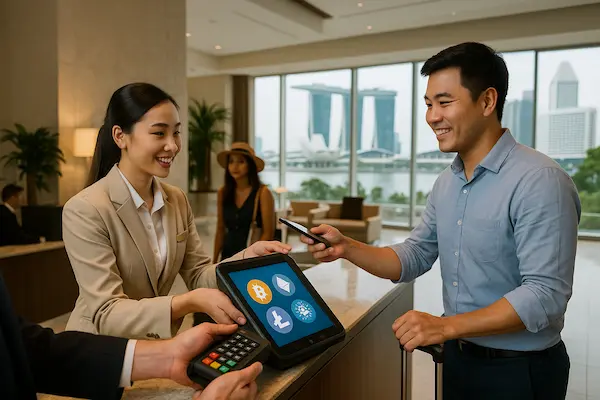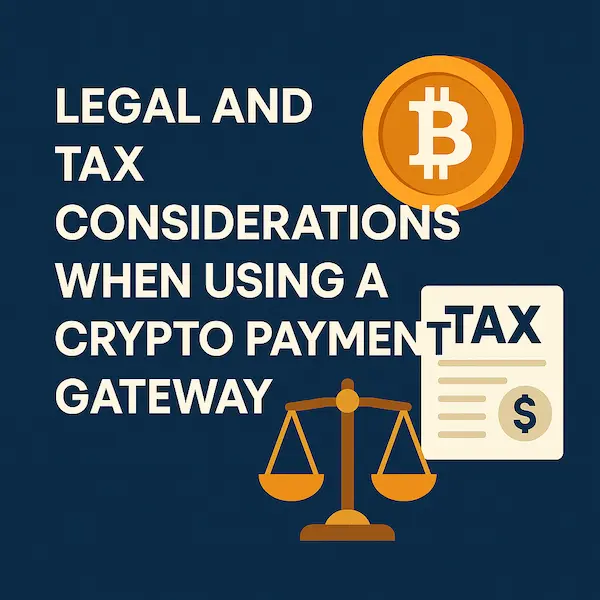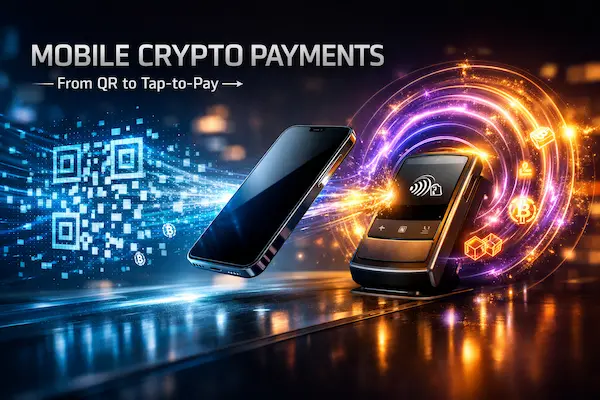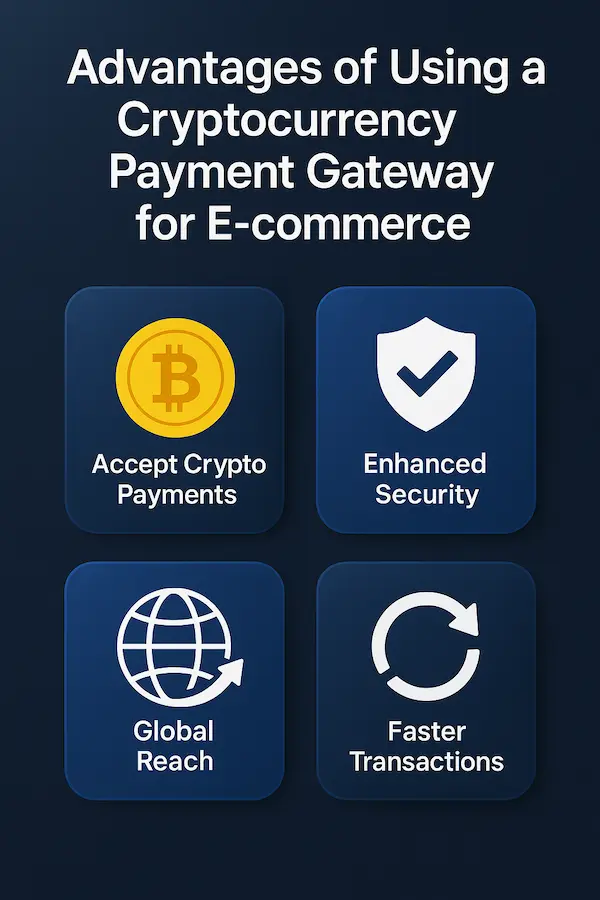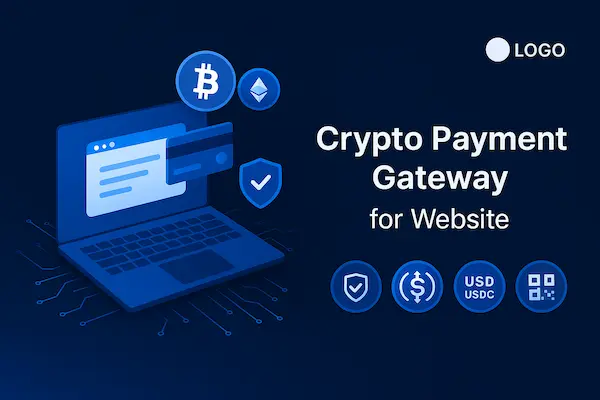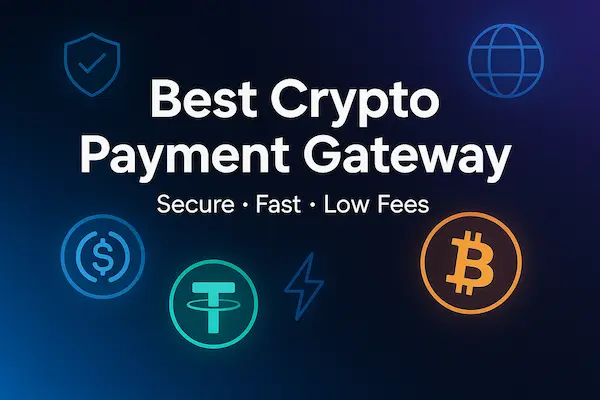Singapore’s hospitality and tourism sector is becoming a natural meeting point for high-value travellers, Web3 founders and digital nomads. They are used to paying with cards, wallets and sometimes directly with crypto or stablecoins. For hotel owners, GMs and travel operators, the question is no longer “Will guests ask to pay in crypto?” but “How do we let them do it in a safe, compliant and simple way?”. A well-designed crypto payment gateway Singapore hotels tourism players can rely on promises exactly that: modern payment options for guests, while finance and compliance teams still work with familiar tools, currencies and clear reports. Throughout this guide, we will refer to this model as Crypto Payment Gateway Singapore Hotels Tourism to highlight its focus on real-world hospitality use cases in Singapore.
Contents
- 1 1. How Crypto Payment Gateways Work for Singapore Hotels and Tourism
- 2 2. Why Crypto Payment Gateways Matter for Singapore Hotels and Tourism
- 3 3. What Is a Crypto Payment Gateway in the Singapore Tourism Context?
- 4 4. Regulatory and Compliance Basics under Singapore’s Payment Services Act
- 5 5. Key Benefits of Crypto Payment Gateways for Singapore Hotels and Tourism Businesses
- 6 6. Real-World Use Cases: How Singapore Hotels and Tourism Players Accept Crypto Today
- 7 7. Implementation Guide – How to Start Using a Crypto Payment Gateway in Your Singapore Hotel
- 8 8. Risks, Limitations and Best Practices for Hotels Using Crypto Gateways
- 9 9. Future of Travel Payments in Singapore – Where Crypto Gateways Fit
- 10 FAQs – Crypto Payment Gateway Singapore Hotels Tourism
- 11 Conclusion
1. How Crypto Payment Gateways Work for Singapore Hotels and Tourism
A crypto payment gateway Singapore hotels tourism businesses can use is simply a bridge between guests who want to pay with digital assets and hotels that prefer to receive stable, familiar money. The guest pays in crypto (for example BTC, ETH or USDT), while the gateway quietly handles the blockchain part, converts the funds and sends SGD or stablecoins to the hotel or travel operator.
For a GM or owner, it works very much like a normal online payment provider, just with an extra layer of compliance and conversion in the background. A good gateway is usually regulated under Singapore’s Payment Services Act, applies KYC/AML checks where needed and gives the finance team clear reports for reconciliation and audit.
In practice, this means:
- Guests can pay online, at the front desk or via invoice using crypto.
- The hotel or tourism business chooses how to receive funds: SGD to a bank account, or specific stablecoins to a corporate wallet.
- Settlement is typically faster than many traditional cross-border methods, with fewer FX surprises.
- The property positions itself as crypto-friendly without taking on the full technical and regulatory burden of handling digital assets directly.
Used correctly, a crypto payment gateway makes it easier for Singapore hotels and tourism operators to serve high-value international and Web3 guests, while keeping payments structured, traceable and compliant.

2. Why Crypto Payment Gateways Matter for Singapore Hotels and Tourism
Singapore’s hotel and tourism sector serves global business travellers, MICE groups and premium leisure guests. Many of them already use wallets and stablecoins, so a crypto payment gateway Singapore hotels tourism businesses can rely on directly shapes how easy it is to book, how much fees they pay and how quickly money hits the hotel’s accounts. For many properties, Crypto Payment Gateway Singapore Hotels Tourism is already changing how they think about cross-border revenue and guest expectations.
1. Changing Guest Expectations in Singapore’s Post-Pandemic Travel Boom
Singapore is again a busy hub for business trips, events and high-end leisure. A growing share of guests are founders, digital nomads and Web3 professionals who expect fast, borderless payments from their phones. When one property offers a simple crypto option and another still forces cards and slow bank transfers, high-value guests will usually choose the smoother experience.
2. Pain Points of Traditional Cross-Border Payments for Hotels and Travel Agencies
Relying only on cards, bank transfers and OTA payouts means high international fees, hidden FX spreads and slow settlement. Chargebacks can arrive weeks after a stay, and finance teams spend hours reconciling different currencies and references. Smaller hotels, hostels and niche tour operators feel this the most because they have less leverage with banks and processors.
3. How Crypto Payment Gateways Solve These Issues for Singapore Tourism
A well-chosen crypto payment gateway Singapore hotels tourism operators use replaces many slow, expensive cross-border steps with blockchain settlement managed by the gateway. Payments confirm within minutes, fees are more predictable and on-chain transactions cut chargeback risk. Guests can pay from anywhere, while the hotel chooses SGD or stablecoin payouts, making planning and reporting much simpler.
Table 1 – Traditional vs Crypto Payments for Singapore Hotels and Tourism
| Aspect | Traditional Payments (Cards / Bank Transfers) | Crypto Payments via Gateway for Singapore Hotels and Tourism |
|---|---|---|
| Cross-border fees | Often high, plus hidden FX spreads | Typically lower and more transparent for large or international bookings |
| Settlement speed | Can take several days, especially across regions | On-chain confirmation within minutes and faster payout cycles from the gateway |
| Chargeback and disputes | Chargebacks possible weeks after stay or tour | Transactions are final once confirmed on chain, reducing chargeback exposure |
| FX and currency management | Multiple currencies to manage, complex reconciliation | Guest pays in crypto; hotel can choose SGD or stablecoin payout for simpler accounting |
| Cash-flow impact | Slower inflows and unclear timing | Clearer settlement windows and improved cash-flow planning |
| Guest experience | Card limits, bank delays, declined transactions | Borderless payments from wallets guests already use, with instant confirmation |
| Operational workload | Heavy reconciliation and dispute handling | Streamlined reporting from the crypto payment gateway dashboard |
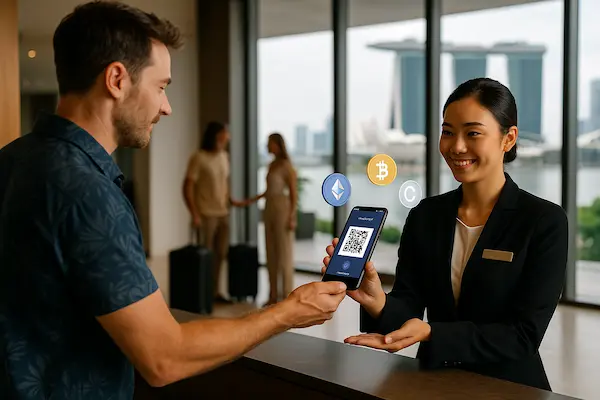
3. What Is a Crypto Payment Gateway in the Singapore Tourism Context?
For hotels and tourism operators, a crypto payment gateway Singapore hotels tourism businesses use is simply a payments layer. It lets guests pay with digital assets, while the property still works with familiar currencies, reports and systems. Seen this way, Crypto Payment Gateway Singapore Hotels Tourism is simply one more payment layer sitting alongside cards, wallets and bank transfers.
1. Simple Definition for Hotel Owners, GMs and Tourism Operators
A crypto payment gateway sits between the guest’s wallet and the hotel’s bank account or corporate wallet. Guests pay in BTC, ETH or stablecoins; the gateway verifies the transaction on-chain and then settles to the hotel in SGD or chosen stablecoins. To the team, it feels similar to an online card processor with a dashboard, history and payout reports.
2. On-Ramp, Off-Ramp and Stablecoins – A Practical View for Hotels
The key ideas are on-ramp, off-ramp and stablecoins. Guests may on-ramp into crypto before paying, but the gateway handles the off-ramp by converting incoming crypto to SGD or stablecoins. Using assets like USDT or USDC reduces volatility so hotels can enjoy crypto payments without riding daily market swings.
3. How Crypto Payment Gateways Plug into Booking Engines, PMS and POS
A good gateway plugs into existing tools instead of replacing them. It can appear as another payment method in the booking engine or website checkout, and staff can use QR codes or payment links at the front desk or outlets. Transaction data can then be exported or synced to PMS and accounting, so crypto becomes just one more payment rail in the hotel’s normal workflow.
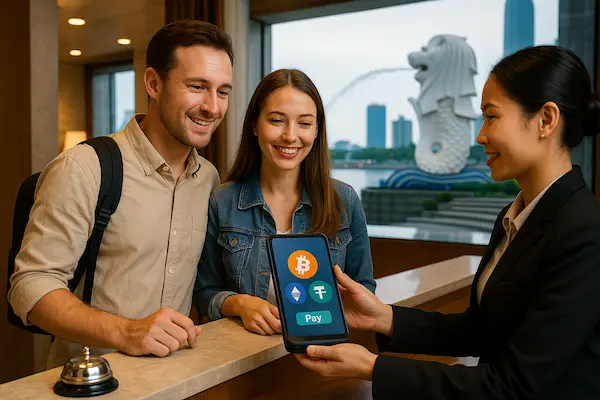
4. Regulatory and Compliance Basics under Singapore’s Payment Services Act
When a property adds a crypto payment gateway Singapore hotels tourism businesses can use, it becomes part of a regulated payment chain. You don’t run a bank, but you do need to understand the basics of MAS rules, the Payment Services Act and how your gateway fits into the Digital Payment Token (DPT) regime. Choosing the right Crypto Payment Gateway Singapore Hotels Tourism partner means aligning with these MAS and Payment Services Act requirements from day one.
1. MAS, the Payment Services Act and Digital Payment Tokens – What Hotels Must Know
MAS is Singapore’s financial regulator and enforces the Payment Services Act, which covers services dealing with Digital Payment Tokens. Most crypto payment gateways working with merchants are licensed or supervised under this framework. For hotels, the key is simple: only work with providers that are transparent about their PSA status and controls.
2. Do Singapore Hotels Need a Licence to Use a Crypto Payment Gateway?
In a typical setup, the gateway is the regulated DPT or payment service provider and the hotel is just a merchant. That means most hotels do not need their own PSA licence just to accept crypto via a gateway. However, groups holding significant digital assets or offering extra financial features should get legal or compliance advice, not rely on marketing claims.
3. KYC, AML and Record-Keeping for Hotels Accepting Crypto
Because the gateway is regulated, its KYC and AML standards will affect hotel workflows. Some bookings, especially high-value or corporate stays, may trigger extra checks compared with card payments. Front-office teams should know how to explain this to guests, while finance and audit teams must understand what records exist, who stores them and how to access them when needed.
4. Working with a Compliant Crypto Payment Gateway in Singapore
Selecting the right partner matters as much as the decision to accept crypto. A compliant provider will share its regulatory status, risk controls, security measures and settlement terms in clear language. For busy hotels, the ideal crypto payment gateway Singapore hotels tourism teams depend on also understands PMS, booking engines and hospitality operations, not just blockchain.
Table 2 – Compliance Checklist for Crypto Payment Gateway Singapore Hotels Should Use
| Criterion | What to Look For | Why It Matters for Hotels and Tourism |
|---|---|---|
| PSA / DPT status | Licence, exemption or clear regulatory classification | Confirms the gateway fits within Singapore’s rules |
| KYC and AML approach | Documented policies, risk-based checks, support for high values | Reduces exposure to illicit funds |
| Settlement and payout options | SGD payouts, stablecoins, clear settlement timelines | Helps planning cash flow and currency mix |
| Reporting and audit trails | Exportable reports, clear references, dispute logs | Simplifies reconciliation and audits |
| Data protection and security | Encryption, access control, incident response procedures | Protects guest and transaction data |
| Contract terms and liability | Clear SLAs, liability caps, dispute resolution | Clarifies who is responsible when issues arise |
| Local and sector experience | Track record with Singapore merchants, ideally hotels or tourism | Increases odds of realistic, hospitality-ready implementations |
| Training and support | Onboarding, staff training, responsive support channels | Makes daily crypto payment handling smooth for operations |
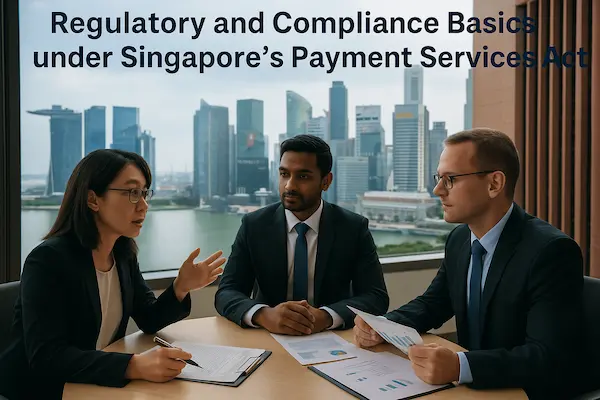
5. Key Benefits of Crypto Payment Gateways for Singapore Hotels and Tourism Businesses
A well-chosen crypto payment gateway Singapore hotels tourism businesses use is more than a tech experiment. It directly impacts who books, how much they spend and how healthy the property’s cash flow looks each month. The benefits show up in marketing, finance and guest experience at the same time. For many properties, Crypto Payment Gateway Singapore Hotels Tourism is becoming a practical way to align guest expectations, finance needs and regulatory requirements in one payment strategy.
1. Attracting High-Value International and Web3 Guests to Singapore
Founders, fund managers, digital nomads and Web3 professionals often travel with a mix of fiat and crypto. When a hotel or tour operator clearly offers a crypto payment option, it becomes an easy choice for these guests. They can book suites, long stays or premium experiences without worrying about card limits, international bank issues or extra FX fees.
2. Faster Settlement and Stronger Cash Flow Management
Traditional cross-border payments can take days to land in the hotel’s account. With a good crypto payment gateway for Singapore hotels, on-chain confirmation arrives within minutes and payouts follow predictable cycles. That gives finance teams clearer visibility on inflows, makes cash-flow planning easier and reduces the need for large safety buffers.
3. Lower Cross-Border Fees and Better Economics for Large Bookings
International card fees and FX spreads quietly eat into the margin on big bookings, especially for MICE, group stays or complex itineraries. Crypto payment gateways often offer more transparent pricing and can be cheaper for high-value transactions. Over a full season, even a small percentage difference on fees can translate into meaningful extra profit for the property.
4. Brand Differentiation as a Crypto-Friendly Singapore Hotel or Tour Operator
In a crowded market, being early to adopt Crypto Payment Gateway Singapore Hotels Tourism solutions is a branding advantage. Clear messaging on the website, booking engine and on-property signage shows that the business understands modern payment habits and supports innovation. That positioning can lead to more word-of-mouth, better coverage in travel and fintech media, and stronger loyalty from guests who value flexible, future-facing payment options. This is why Crypto Payment Gateway Singapore Hotels Tourism is starting to appear more often in revenue meetings and long-term planning discussions.
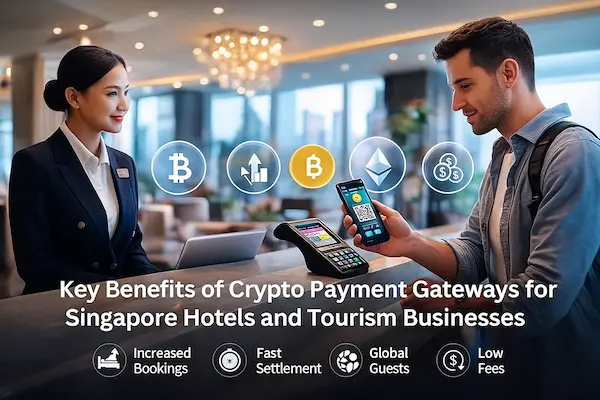
6. Real-World Use Cases: How Singapore Hotels and Tourism Players Accept Crypto Today
In practice, a crypto payment gateway Singapore hotels tourism businesses rely on shows up in simple, visible touchpoints: on the booking page, at the front desk, inside invoices and even in long-stay contracts. The goal is not to replace every payment method, but to add one more rail that works especially well for international and Web3 guests. Used well, Crypto Payment Gateway Singapore Hotels Tourism becomes a visible part of the guest journey without adding confusion for staff. When implemented carefully, Crypto Payment Gateway Singapore Hotels Tourism turns these touchpoints into a consistent, recognisable experience for international and Web3 guests.
1. Direct Online Bookings with Crypto on Hotel and Resort Websites
Hotels can add crypto as an extra payment option in their booking engine or website checkout. Guests pick dates, choose a room and then select the crypto payment gateway at the final step. The system generates a wallet address or QR code, confirms the transaction and passes the booking back into the PMS. This setup helps shift volume away from OTAs and gives properties more control over pricing and guest data.
2. Front Desk, Concierge and On-Property Spending via QR or Payment Links
At the property, staff can use QR codes or payment links from the gateway for walk-ins, upgrades, spa treatments, F&B and activities. A guest might decide to extend their stay or book a last-minute tour; instead of dealing with card limits or foreign bank issues, they pay from a wallet in a few taps. The hotel sees the confirmation on the dashboard and applies the payment in the PMS as usual.
3. Travel Agencies, DMCs and Tour Operators Serving Crypto-Rich Guests
Inbound travel agencies, DMCs and niche tour operators can issue invoices or payment pages that route through the same gateway. This works well for complex itineraries or MICE packages where clients want a single crypto payment to cover hotels, venues and experiences. Agencies gain a new way to close high-value deals while still receiving SGD or stablecoins that fit existing finance processes.
4. Long-Stay, Serviced Apartments and Co-Living for Digital Nomads
Serviced apartments and co-living spaces in Singapore increasingly host remote workers and digital nomads who are paid partly in crypto. Using the gateway, operators can accept monthly rent, deposits or bundled services in digital assets while settling to fiat or stablecoins. Over time, this makes crypto-friendly accommodation a clear niche, and creates a steady stream of on-chain payments that still integrate cleanly with internal accounting and reporting.
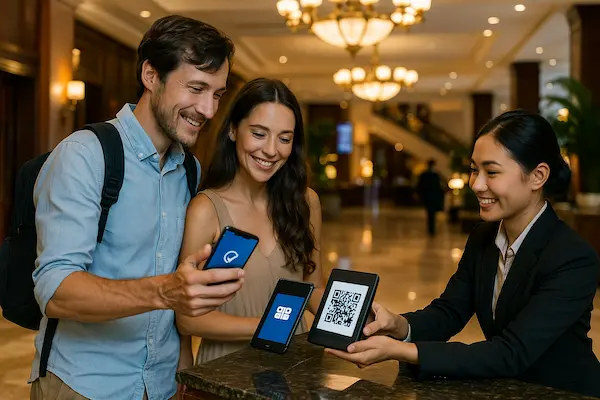
7. Implementation Guide – How to Start Using a Crypto Payment Gateway in Your Singapore Hotel
Rolling out a crypto payment gateway Singapore hotels tourism businesses can rely on is mainly about clear steps and simple rules. You don’t need to overhaul your whole payment stack – just add one more rail in a controlled way.
1. Define Use Cases and Internal Policy
Decide where crypto fits first: direct website bookings, MICE invoices, long-stay contracts or on-property upsells. Set basic rules on which services can be paid in crypto, the coins you accept (for example a few stablecoins plus BTC/ETH) and any limits. Write this into a short internal policy.
2. Select a Compliant Crypto Payment Gateway
Shortlist providers that are transparent about their Payment Services Act status and how they handle Digital Payment Tokens. Compare fees, supported assets, payout options (SGD vs stablecoins) and integrations. The best crypto payment gateway for Singapore hotels is the one that balances compliance, stability and hospitality know-how.
3. Integrate with Booking, PMS, POS and Accounting
Add the gateway as an extra payment option in your booking engine or website. For on-property use, deploy QR codes or payment links at the front desk and outlets. Make sure transaction IDs can be matched in the PMS and exported to your accounting tools so reconciliation stays simple.
4. Train Staff and Update Guest Communication
Give front desk, reservations, sales and finance teams a short guide on how crypto payments work, with basic FAQs and sample scripts. Update your website, confirmation emails and key on-property touchpoints so guests know crypto is available and understand any conditions.
5. Pilot First, Then Scale
Start with a limited pilot – for example, direct website bookings or selected corporate clients – and track conversion, settlement times and issues. Once the process is stable, extend crypto payments to more channels and products, turning crypto payment gateway Singapore hotels tourism usage into a normal, low-friction part of your payment mix. Over time, Crypto Payment Gateway Singapore Hotels Tourism stops feeling experimental and becomes a normal, low-friction option in daily operations.
8. Risks, Limitations and Best Practices for Hotels Using Crypto Gateways
Even with clear benefits, a crypto payment gateway Singapore hotels tourism businesses use still comes with risks. Most of them can be managed, but only if owners, finance teams and front office understand where problems usually appear and put a few simple safeguards in place.
1. Volatility, Stablecoins and Rate Management
If guests pay in volatile coins, the value can move between the moment they send funds and the moment the gateway settles to the hotel. Using trusted stablecoins and auto-conversion to SGD reduces this risk, but you still need clear rules on which assets you accept, how rates are set and who approves any exceptions.
2. Operational and Technical Risks
Crypto payments depend on accurate addresses, the right network and staff following the correct steps. Common issues include underpaid transactions, guests sending to the wrong chain or staff not checking confirmations properly. To avoid this, standardise workflows, use the gateway’s built-in checks where possible and make sure only trained staff access the merchant dashboard.
3. Tax, Accounting and Audit Trail
Revenue from crypto still needs to be recognised, taxed and audited like any other room or package sale. If reporting is messy, finance teams will struggle to reconcile bookings, rates and payouts. Choose a gateway that offers clear exports in SGD equivalents, and agree with your accountants on how to book these transactions long before your first crypto payment gateway pilot goes live.
4. Practical Best Practices for Singapore Hotels and Tourism Operators
Start with a narrow pilot, document simple internal rules and review them after the first wave of transactions. Make sure at least one person in finance and one in operations “own” the relationship with the provider. Regularly review settlement reports, dispute logs and security notices from the gateway so your Crypto Payment Gateway Singapore Hotels Tourism project remains low-risk, predictable and easy to explain to both guests and auditors.
9. Future of Travel Payments in Singapore – Where Crypto Gateways Fit
Singapore is positioning itself as a long-term hub for next-generation finance and tourism. In that landscape, a crypto payment gateway Singapore hotels tourism businesses rely on is likely to move from “early adopter” status to a normal part of the payment stack, sitting alongside cards, wallets and bank transfers.
1. Web3 Conferences, MICE and High-Value Crypto Guests in Singapore
Singapore already hosts major fintech and Web3 events, bringing in guests who are comfortable moving large values on-chain. Hotels and venues that support crypto payments can capture more direct bookings for suites, event packages and long-stay arrangements. Over time, being on the preferred list for Web3 conferences will depend not just on location and meeting space, but also on flexible, borderless payment options.
2. Loyalty, Tokenised Rewards and On-Chain Vouchers
As loyalty programs evolve, points and vouchers may increasingly live on-chain. Hotels and tourism operators can experiment with tokenised rewards, NFT-style passes or on-chain gift cards that plug into the same crypto payment gateway. This keeps guest identity, rewards and payment flows closer together, while still letting finance teams account for everything in SGD or stablecoins.
3. Connecting Crypto Gateways with Wallets, Super Apps and Travel Platforms
Future guests will not think in terms of “blockchain rails” – they will just tap on a wallet, super app or travel platform that routes payments automatically. A crypto payment gateway for Singapore hotels and tourism will sit behind these interfaces, handling settlement, FX and reporting. Properties that integrate early will be ready when large wallet providers or super apps add Singapore travel offers to their ecosystems.
4. How Crypto Payment Gateway Singapore Hotels Tourism Could Evolve by 2026 and Beyond
By 2026, crypto payments in hospitality are likely to feel more routine: clearer regulations, more mature gateways and simpler integrations with PMS and booking engines. Hotels that start now will have tested policies, trained staff and proven processes, while late adopters are still debating pilots. In that environment, a well-run Crypto Payment Gateway Singapore Hotels Tourism strategy becomes less about technology and more about long-term positioning in a competitive regional travel market.
FAQs – Crypto Payment Gateway Singapore Hotels Tourism
1. Can Singapore hotels legally accept crypto payments through a gateway?
Yes, as long as you use a compliant gateway operating within the Payment Services Act framework. The hotel remains a merchant selling rooms and services.
2. Do hotels and tourism businesses need a Payment Services licence in Singapore?
Normally no. The licensed crypto payment gateway is the regulated provider; the hotel just accepts payouts. Only special models may need extra legal review.
3. Which cryptocurrencies and stablecoins are most practical for Singapore hotels?
Stablecoins like USDT and USDC are usually best. Many properties also accept BTC or ETH but auto-convert them to stablecoins or SGD.
4. How does a crypto payment gateway integrate with hotel booking engines and PMS?
It’s added as another payment method via API, plugin or hosted page. Once paid, the gateway sends a confirmation back to your PMS or channel manager.
5. What are the main risks for hotels using crypto payment gateways in Singapore?
Main risks are volatility, wrong addresses/networks and poor reporting. Stablecoin flows, clear processes and a trusted provider reduce most of them.
6. How are crypto payments for hotel stays treated for tax and accounting?
They are booked like normal revenue, using the SGD value provided by the gateway at the time of payment. Your accountant sets the detailed treatment.
7. Can small boutique hotels or hostels also use a crypto payment gateway?
Yes. Smaller properties can start with simple QR codes, payment links or hosted checkout pages from the same gateway.
8. How can hotels market themselves as crypto-friendly to international guests?
Highlight crypto payments on your website, booking engine and emails, then list on crypto-travel directories and partner with Web3 or fintech events to promote your crypto payment gateway Singapore hotels tourism offering.
Conclusion
A well-implemented crypto payment gateway Singapore hotels tourism businesses use is not just about adding another way to pay. It helps attract high-value guests, stabilise cash flow and position your property as part of Singapore’s future travel ecosystem, while still staying within MAS and Payment Services Act rules.
Why Crypto Payment Gateways Matter
Crypto gateways give international and Web3 guests a fast, borderless option, reduce some cross-border fees and bring clearer, faster settlement. For hotels and tourism operators, they fit alongside cards and bank transfers, not instead of them, and can be rolled out gradually with clear limits.
Action Checklist for GMs and Owners
Focus on five simple moves:
- Define where crypto fits (direct bookings, MICE, long stay, upsells).
- Choose a compliant, hospitality-aware crypto payment gateway.
- Integrate with booking, PMS and basic accounting flows.
- Train staff and update guest-facing communication.
- Run a pilot, measure results, then scale.
Quick Implementation and ROI Summary for Singapore Hotels Using Crypto Payment Gateways
| Step | Typical Timeframe | Main Owner (Hotel) | Key Outcome / ROI Hint |
|---|---|---|---|
| Define use cases & policy | 1–2 weeks | GM / Finance / Operations | Clear rules on where and how crypto is used |
| Select gateway partner | 2–4 weeks | Finance / Legal / IT | Compliant provider aligned with Singapore regulations |
| Basic integration & testing | 2–6 weeks (pilot scope) | IT / PMS vendor / Gateway | Working crypto option for selected channels or products |
| Staff training & comms | 1–2 weeks | Operations / HR / Marketing | Teams know what to do; guests see clear, honest messaging |
| Pilot and review | 1–3 months | GM / Finance / Ops | Data on usage, fees, settlement speed and guest feedback |
| Scale and optimise | Ongoing | Management team | Crypto becomes a stable, low-friction part of the payment mix |
Ready to Make Crypto Work for Your Hotel? Start with XaiGate
If you want a crypto payment gateway Singapore hotels and tourism businesses can actually use in daily operations – not just in a slide deck – XaiGate is built for exactly that. XaiGate focuses on Singapore’s Payment Services Act environment, stablecoin-first flows and hospitality-ready reporting, so your team can serve Web3 guests while still closing the month in familiar SGD numbers.
With XaiGate, you can:
- Add crypto as a payment rail for direct bookings, MICE and long stays while still settling in SGD or major stablecoins.
- Keep finance and compliance comfortable with clear reports, exportable data and audit-ready transaction trails.
- Run a controlled pilot first, test guest demand and fee impact, then scale once the numbers are proven.
Next step:
Turn “Crypto Payment Gateway Singapore Hotels Tourism” from a strategy slide into a working revenue channel.
Book a short consultation with the XaiGate team, map your use cases, and get a concrete rollout plan for your hotel or tourism business.
For daily updates, subscribe to XAIGATE’s blog!
We may also be found on GitHub, and X (@mxaigate)!

